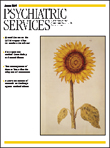Jack Fincham has created a guidebook that attempts to enhance medication compliance and patient and caregiver knowledge about prescription and over-the-counter medications. In his book, Dr. Fincham tackles such topics as medical abbreviations, methods of enhancing adherence, acceptable ethical behavior of pharmacists and doctors, legal rights regarding health information, useful health care websites for patients, and other practical aspects of medication use. The book is written for the patient or the patient's caregiver but also provides direction to a health care provider as to what are real patient concerns.
The book itself can be detailed at times, but the author has added text boxes, Key Points, which highlight the more important points. One of the more valuable chapters discusses barriers to compliance and methods to remove them. Other useful sections discuss professional, appropriate behavior and what to expect from a pharmacist. These areas provide examples of behaviors that will help alert the patient to when a pharmacist may be acting in either unethical or illegal ways. Online pharmacies and other online services are discussed, and Dr. Fincham provides signs of fraud and abuse for the reader so they can address these issues or avoid these pharmacies altogether.
Another beneficial chapter reviews herbal products. He cautions about legitimate risks associated with herbal products and also provides examples of harmful and deadly drug interactions between herbal products and prescription medications.
At times, however, the author seems to provide information that may be interpreted in a misleading way. He frequently refers to anxiolytics, but his cautions relate only to benzodiazepines and not the multiple other medication classes that are used to treat anxiety disorders. The chapter regarding drug interactions is generally too superficial and runs the risk of causing inappropriate alarm in a patient. He makes a general statement that medications that treat the same condition should not be taken together and further cautions that "pain medications should not be combined together." One section has been mislabeled angiotensin-converting enzyme inhibitors but refers to and lists calcium channel blockers. Also, descriptions of medical conditions and medication characteristics, both kinetic and dynamic, are provided, at times, in terms that are too sophisticated for the lay person. For example, he writes that cisapride and other drugs should not be taken together because "they can lead to cardiac arrhythmias, including torsades de pointes ." He does comment after these sections that consumers should consult with their doctor or pharmacist about these issues.
Although the title of the book leads one to think that it is for consumers, the content of the book could also be used as a teaching tool in pharmacy or allied health academic programs. It refers to issues that all pharmacists should be aware of and should be prepared to deal with. By using the book as a required reading in a pharmacy course, the students would be guided to the public's perspective and the information they may be using for decision making.
Dr. Fincham has created a text that compiles most of the critical topics related to taking medications. He provides insights into the medical profession that patients may find useful when trying to work with the health care system. The book tries to empower the consumer and help maximize therapeutic outcomes, yet some concerns described in the book may need interpretation by a pharmacist or physician.

